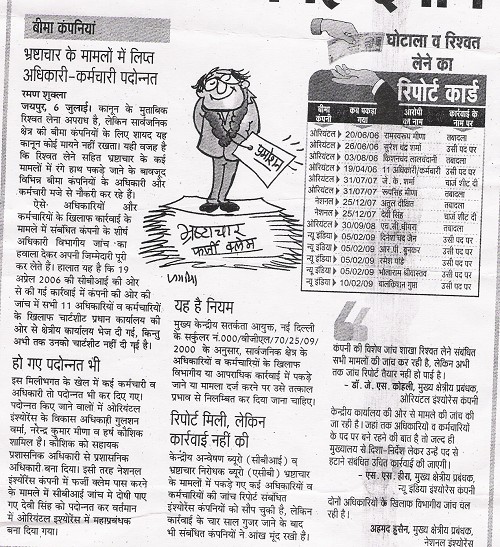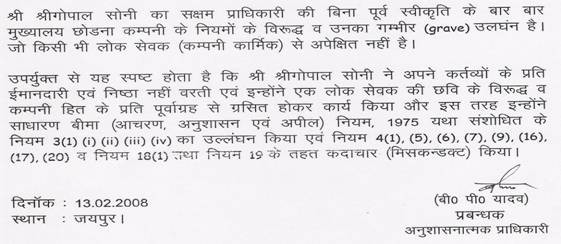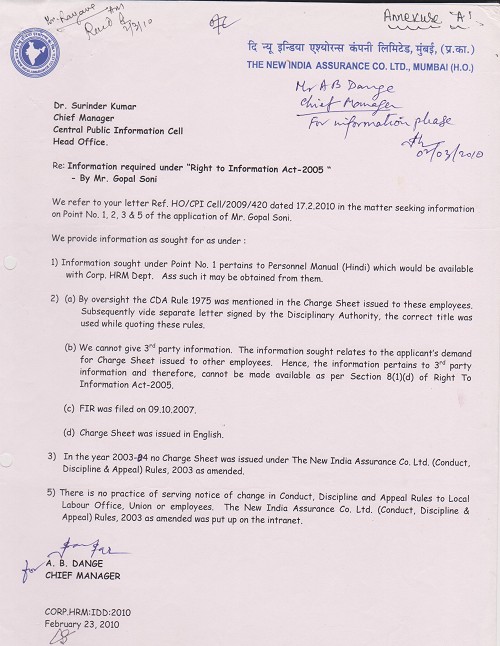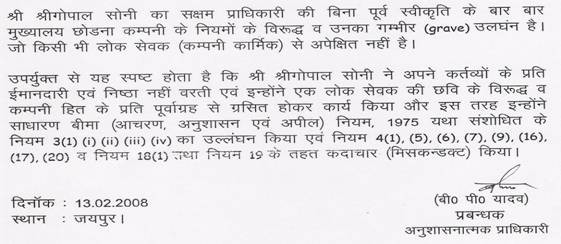How resoanble the law is depends upon how fair is the procedure prscribed.
Gujarat High Court
Sanjaybhai Induprasad Bhatt vs State Of Gujarat on 12 October, 2000
Equivalent citations: (2001) 4 GLR 3745
Quote:
The right to life includes the right to livelihood. The Sweep of the right of life conferred by Article 21 is wide and far-reaching. It does not mean merely that life cannot be extinguished or taken away as, for example, by imposition and execution of the death sentence, except according to the procedure established by law. That is but one aspect of the right to life. An equally important facet of that right is the right to livelihood because, no person can live without the means of living, that is, the means of livelihood. If the right to livelihood is not treated as a part of the constitutional right to life, the easiest way of depriving a person of his right to life would be to deprive him of his means of livelihood to the point of abrogation. Such deprivation would not only denude the life of its effective content and meaningfulness but it would make life impossible to live. And yet, such deprivation would not have to be in accordance with the procedure established by law, if the right to livelihood is not regarded as a part of the right to life. That, which alone makes it possible to live, leave aside what makes life livable, must be deemed to be an integral component of the right to life. Deprive a person of his right to livelihood and you shall have deprived him of his life. The view taken by Apex Court in case of Oga Tellies v. Bombay Municipal Corporation reported in A.I.R.1986 180 in respect of the procedure prescribed by law for the deprivation of right conferred by Article 21 must be fair, just and reasonable. The relevant observations made by the Apex Court in para 39, 40 and 41 are as under :-
"It is far too well settled to admit of any argument that the procedure prescribed by law for the deprivation of the right conferred by Art 21 must be fair, just and reasonable. (See E.P. Royanppa v. State of Tamil Nadu, (1974) 2 SCR 348 : (AIR 1974) 2 SCR 621 : (AIR 1978 SC 597) ; M.H. Hoskot v. State of Maharashtra, (1979) 1 SCR 1 SCR 192 : (AIR 1978 SC 1548); Sunil Batra V. Delhi Administration, (1979) 1 SCR 392 : (AIR 1978 SC 1675); Sita Ram v. State of U.P. (1979) 2 SCR 1085 : (AIR 1979 SC 745); Hussainara Khatoon I. v. Home Secretary, State of Bihar, Patna (1980) 1 SCC 81 : (AIR 1979 SC 1360); Sunil Batra II v. Delhi Adminstration (1980) 2 SCR 557 : (AIR 1980 SC 1579); Jolly George Verghese v. Bank of Cochin, (1080) 2 SCR 913, 921-922 : (AIR) 1980 SC 470 at p. 475); Kasturi Lal Lakshmi Raeddy v. State of Jammu and Kashmir, (1980) 3 SCR 1338, 1356 : (AIR 1980 SC 1992 at p. 2000); and Francis Coiralie Mullin v. Administrator, UYnion Terrioroty of Delhi(1981), 2 SCR 516, 523-524 : (AiR 1981 SC 746 at p .750 )."
40. Just as a mala fide act has no existence in the eye of law, even so, unreasonableness vitiates law an procedure alike. It is therefore essential that the procedure prescribed by law for depriving a person of his fundamental right, in this case the right to life, must conform to the norms of justice and fairplay, Procedure which is unjust or unfair in the circumstances of a case, attracts the vice of unreasonableness, thereby vitiating the law which prescribes that procedure and consequently, the action taken under it. Any action taken by a public authority which is invested with statutory powers has therefore, to be tested by the application of two standards : If any action must be within the scope of authority conferred by law and secondly, it must be reasonable. If any action, within the scope of the authority conferred by law, is found to be unreasonable, it must mean that the procedure established by law under which that action is taken is itself unreasonable. The substance of the law cannot be divorced from the procedure which it prescribes for, how reasonable the law is, depends upon how fair is the procedure prescribed by it.












